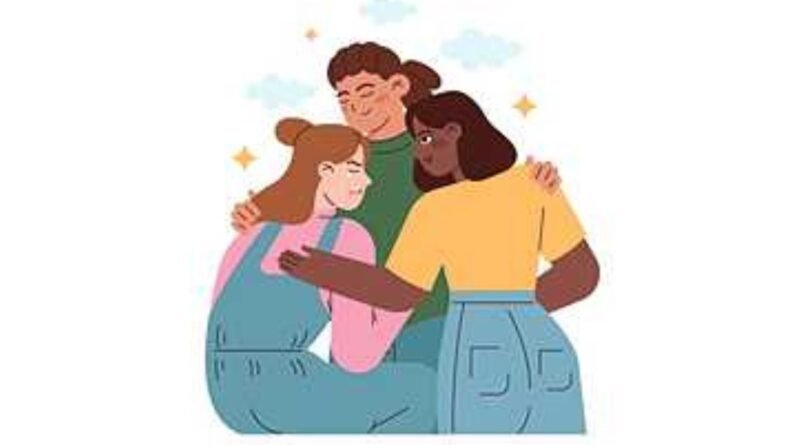Friendship and Mental Wellness: A Lifeline for the Soul
Friendship is more than just companionship—it is a crucial element of emotional, psychological, and even physical well-being. In today’s hyper-connected yet increasingly isolated world, genuine friendships provide a space for support, validation, growth, and shared joy. This blog explores the significance of friendship, its psychological benefits, strategies for fostering healthier connections, and when professional support can help enhance your social skills.
Understanding Friendship
At its core, friendship is a voluntary, mutual relationship based on affection, trust, loyalty, and emotional closeness. Unlike family or romantic relationships, friendships are often chosen and nurtured through shared experiences, empathy, and communication. Friendships may vary in depth and duration—some last a lifetime, while others are brief yet impactful.
The psychology of friendship examines how these bonds form, what sustains them, and how they influence our development. According to research, meaningful friendships are linked to reduced levels of stress and depression, emotional resilience, and life satisfaction.
Benefits of Meaningful Friendships
Friendships significantly impact various domains of mental health. Here are a few well-researched benefits:
- Emotional Support: Good friends offer a non-judgmental space to share fears, aspirations, and challenges, boosting emotional regulation and self-esteem.
- Stress Relief: Engaging in positive social interactions reduces cortisol levels and helps us cope with stressful situations more effectively.
- Longevity and Physical Health: Studies have linked strong friendships with lower blood pressure, reduced risk of heart disease, and even extended life expectancy.
- Cognitive Health: For older adults, regular social interaction through friendships has been associated with a lower risk of cognitive decline.
- Personal Growth: Constructive friendships encourage self-awareness, empathy, and healthy boundaries, which are critical for personal development.
Common Challenges in Friendships
Even the strongest friendships can face obstacles. Common difficulties include:
- Miscommunication or misunderstandings
- Growing apart due to lifestyle changes
- Unresolved conflicts or betrayals
- Jealousy or competition
- Emotional unavailability
If these issues are not resolved, they may cause emotional pain or the relationship to fail.
Building and Maintaining Healthy Friendships
Take into account the following guidelines to create and maintain enduring friendships:
- Be Authentic: Honesty about your thoughts and emotions builds trust and deepens connections.
- Practice Active Listening: Give your full attention, avoid interrupting, and validate your friend’s feelings.
- Offer Support: Be available during both joyful and difficult times.
- Set Boundaries: Healthy friendships respect individual space, time, and emotional energy.
- Engage Regularly: Consistent communication, even small check-ins, can strengthen bonds.
Digital Friendships: Pros and Cons
Social networking and texting applications have completely changed how we sustain connections in the digital era. While they allow us to stay connected across distances, digital friendships can also:
- Lack depth and emotional intimacy
- Lead to misunderstandings without tone and context
- Create illusions of closeness without genuine support
To maintain meaningful digital connections, prioritise intentional conversations and meet in person when possible.
When to Seek Professional Help
Friendship challenges can sometimes stem from deeper emotional or psychological patterns. If you:
- Struggle to trust others or open up
- Feel consistently lonely despite being surrounded by people
- Tend to sabotage close relationships
- Have you experienced trauma or rejection affecting your social confidence?
…you may benefit from professional counselling or therapy.
Support for Strengthening Social Bonds
Sometimes, building healthy friendships requires emotional healing and guidance. If you feel stuck in negative patterns, professional help can make a profound difference.
TalktoAngel is a reliable online counselling platform that links people in India with certified online counsellors, therapists, and online psychologists. Their user-friendly interface and 24/7 accessibility make seeking help convenient and confidential
Psychowellness Center, recognized as one of the best mental health clinics in Delhi, offers both in-person and online counselling sessions focused on strengthening interpersonal relationships, communication skills, and emotional intelligence. Their experienced psychologists provide tailor-made support to improve your social well-being.
Whether you’re looking to heal from past friendships or develop new ones with confidence, both platforms offer compassionate and evidence-based support.
Conclusion
Self-improvement is an evolving process—there’s no finish line. By taking small, consistent steps and seeking the right support, you can transform challenges into opportunities and live a more empowered, purpose-driven life. Start today. Reflect, act, grow—and remember, you don’t have to do it alone. Help is just a click away.
References:
- American Psychological Association. (2023). Self-improvement and goal setting. Retrieved from https://www.apa.org
- Dweck, C. (2006). Mindset: The New Psychology of Success. Random House.
- Covey, S. R. (1989). The 7 Habits of Highly Effective People. Free Press.
- Neff, K. (2011). Self-Compassion: The Proven Power of Being Kind to Yourself. William Morrow.




